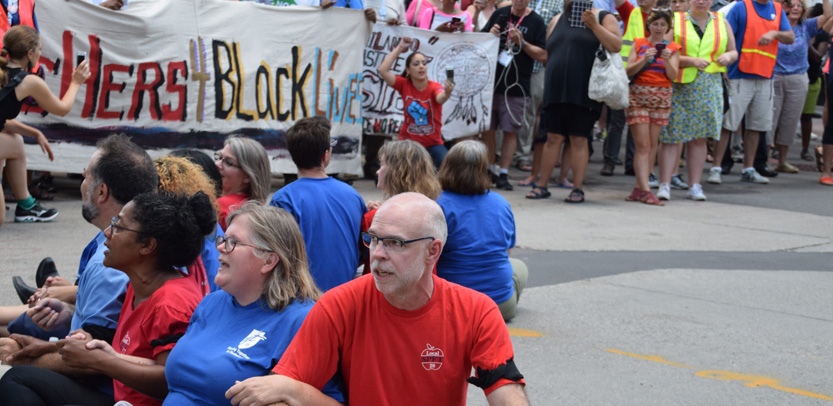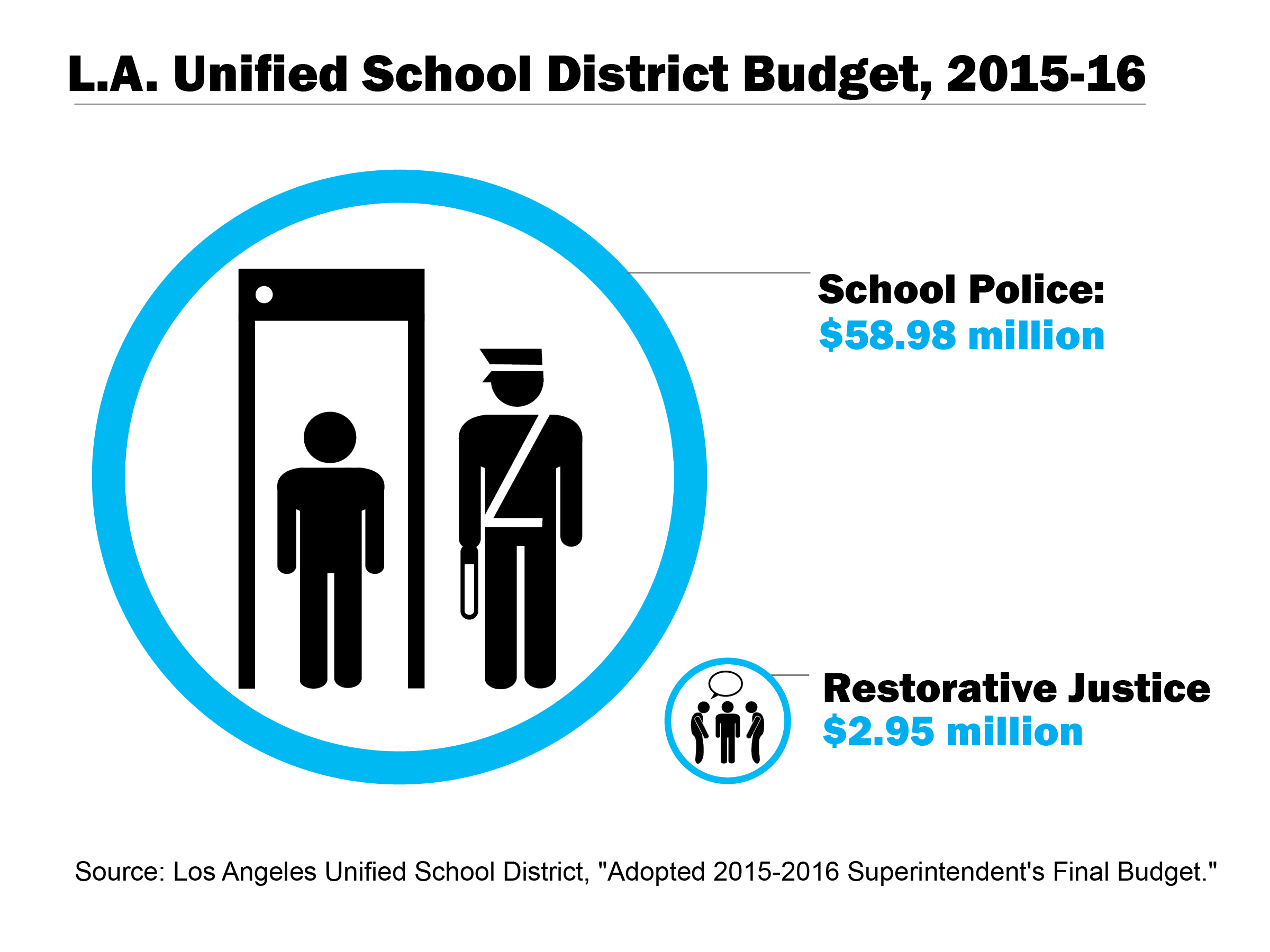Teachers Arrested Protesting Police Brutality in the Twin Cities

Teachers in Minneapolis were arrested in civil disobedience over Philando Castile's death. Photo: Samantha Winslow
With 3,000 teachers gathered in Minneapolis for the American Federation of Teachers convention, the two Twin Cities teachers unions led a march to protest the recent police killing of an African American man, Philando Castile, at a traffic stop.
Educators want to link their struggle for resources for public schools with the wider need for public investment in neighborhoods and cities, particularly for communities of color.
Teachers in town from Washington D.C., Orlando, and New York City joined the July 19 march.
Cell-phone video of Castile’s death in a St. Paul suburb has spread rapidly through social media. Like other recent police shootings of African Americans, it sparked national outrage and protests.
He was shot and killed in his car, as he reached for his identification, while his partner recorded on her phone and her daughter watched from the backseat.
CLOSE TO HOME
Castile’s death hit close to home for St. Paul educators, and for the city as a whole.
A graduate of St. Paul public schools, Castile worked for 14 years in a school cafeteria. News of his killing drew an outpouring of stories from parents and co-workers, painting a picture of a man who loved and was beloved by the kids he served lunch to every day.
Minneapolis teacher Corinth Matera said she wanted to show students that their teachers recognize what’s happening to them outside of school—they’re being targeted by police. “Our students experience the same thing every day,” Matera said. “It’s important for our union to be out in front on this.”
St. Paul Federation of Teachers Vice President Nick Faber saw the march as part of a wave of protests not only against the police killings of African Americans, but also against disinvestment in Black communities.
“We can’t just do zero-tolerance,” Faber said, drawing parallels between policing and the harsh discipline that students of color disproportionately face at school. Education activists point to a “school-to-prison pipeline.”
In its latest contract, the teachers union won funding to pilot an alternative approach to discipline, including additional staff and training. “We are talking about public safety being beyond our classrooms and into the community,” Faber said.
Teachers streamed out of the Minneapolis Convention Center to march to the downtown U.S. Bank headquarters, where 21 were arrested engaged in civil disobedience.

SUPPORT LABOR NOTES
BECOME A MONTHLY DONOR
Give $10 a month or more and get our "Fight the Boss, Build the Union" T-shirt.
Rally speakers included members of both teacher locals, leaders of the community group Neighborhoods Organizing for Change, and Chicago Teachers Union Recording Secretary Michael Brunson.
NAMING THE PROBLEM
CTU has made racial segregation and school underfunding central issues in its contract campaigns. After a cover-up was exposed in the shooting death of another unarmed African American man, Laquan McDonald, the union voted to support an elected police-accountability council in Chicago.
“The Black lives movement is not going away,” said Brunson. “We are talking about justice for our students.”
The St. Paul and Chicago unions have targeted big banks in their contract campaigns. Chicago teachers want the city to stop allowing Bank of America and other banks to profit off its debt, and to make the banks pay more taxes to fund schools.
St. Paul teachers, in their most recent negotiations, demanded that their district stop doing business with banks that foreclose on families during the school year. They succeeded in moving the district to review its bidding process.
Foreclosures aren’t the only way banks are harming school communities. “U.S. Bank is profiting off privatized prisons,” Faber said. “They are continuing to push for a system based on incarceration.”
The teachers have also demanded that the district require all its contractors, including banks, to provide sick leave and pay at least $15 an hour.
“We have to invest in our schools and community structures to support all members,” Faber said, “but especially Black families.”
Read more: Philando Castile's killing hit home for many Twin Cities union members. How are other locals responding to the growing protest movement?
CORRECTION: Michael Brunson is recording secretary, not vice president, of CTU.







You must log in or register to post a comment.